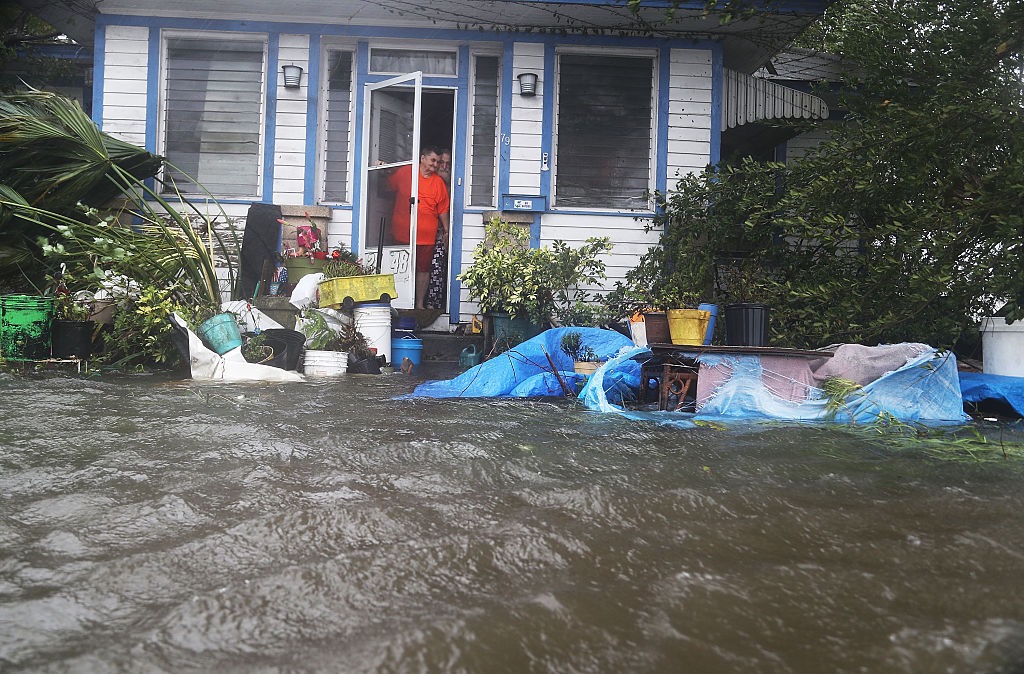Why Some People Don't Flee Hurricanes

Get the world’s most fascinating discoveries delivered straight to your inbox.
You are now subscribed
Your newsletter sign-up was successful
Want to add more newsletters?

Delivered Daily
Daily Newsletter
Sign up for the latest discoveries, groundbreaking research and fascinating breakthroughs that impact you and the wider world direct to your inbox.

Once a week
Life's Little Mysteries
Feed your curiosity with an exclusive mystery every week, solved with science and delivered direct to your inbox before it's seen anywhere else.

Once a week
How It Works
Sign up to our free science & technology newsletter for your weekly fix of fascinating articles, quick quizzes, amazing images, and more

Delivered daily
Space.com Newsletter
Breaking space news, the latest updates on rocket launches, skywatching events and more!

Once a month
Watch This Space
Sign up to our monthly entertainment newsletter to keep up with all our coverage of the latest sci-fi and space movies, tv shows, games and books.

Once a week
Night Sky This Week
Discover this week's must-see night sky events, moon phases, and stunning astrophotos. Sign up for our skywatching newsletter and explore the universe with us!
Join the club
Get full access to premium articles, exclusive features and a growing list of member rewards.
As Hurricane Matthew churned up the U.S. southeast coastline, public officials have been warning residents of the dire danger and imploring them to evacuate.
You'd think that residents would be persuaded when Florida Gov. Rick Scott told them bluntly that "This storm will kill you" or South Carolina Gov. Nikki Haley tweeted ominously, "This will be the LAST time you will hear my voice about evacuations." Or when a local sheriff's grisly warning that he would need body bags for people who disregarded his call for them to seek refuge elsewhere.
Nevertheless, according to news reports, many people in Florida -- as many as 5 percent of those in the hurricane's path, according to the New York Times -- are ignoring officials' admonitions and choosing instead to ride out the storm's brutal winds, which the National Hurricane Center said reached 120 miles per hour as the storm reached northern Florida late Friday morning.
RELATED: Terrifying Images of Hurricane Matthew's Fury
Among those who refused to budge was 1990s rapper-turned-home improvement TV show star Vanilla Ice, who tweeted that he was staying put in Palm Beach, despite"flooding and debris flying everywhere."
The Orlando Sentinel reported that some Daytona Beach residents were confident they had sufficiently reinforced their houses to withstand the hurricane, but others didn't even bother to do that, or even to make even the most basic preparations for an emergency, such as stocking up on canned food or filling up a bathtub with extra water.
"Wind and a little rain," one man in his 70s, who had moved to Florida from Oklahoma a decade ago, told the newspaper. "What is there to be worried about?"
Get the world’s most fascinating discoveries delivered straight to your inbox.
That sort of blithe disregard for the storm, which killed nearly 300 people in Haiti when it hit there a few days ago, is a worry for public safety officials, one of whom noted that some of those who had resisted evacuation were calling 911 in panic when the storm got closer and they realized what they were getting into.
RELATED: Why Hurricane Matthew is So Strong
But why don't some people listen to the warnings? One possibility is that in the 11 years since Hurricane Wilma made landfall, Florida has gained a lot of new residents who have no experience with hurricane dangers. But that's refuted in part by a 2011 study published in the journal Risk Analysis found that while having lived through hurricanes did have some effect on perception of risk, it wasn't as powerful of a factor as personality.
A study of people who survived Hurricane Katrina, published in the journal Psychological Science in 2009, suggests that people who choose to ride out hurricanes have strikingly different mindsets and values compared to those who heed evacuation warnings.
"Leavers emphasized independence, choice and control, whereas stayers emphasized interdependence, strength and faith, " the researchers wrote.
People who stayed put during the storm and those who fled tended to come from different socio-economic strata. Leavers had more education and income, greater access to news information, and more reliable means of transportation. They also tended to have more geographically spread-out social networks, so in some cases they could stay with friends instead of checking into a public shelter.
The National Oceanic and Atmospheric Administration has been funding research in an effort to figure out how to make hurricane warnings and other alerts more persuasive. Some experts told the New York Times that instead of issuing wide-ranging evacuation orders at press conferences, officials might do better by providing more detailed warnings for specific areas that people would get on their mobile phones.
Original article on Discovery News.
 Live Science Plus
Live Science Plus










